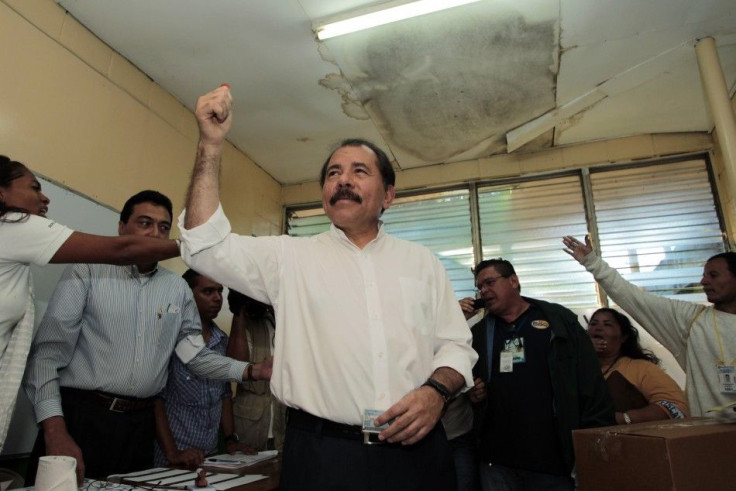Ortega Wins Re-Election in Nicaragua, but Opposition Candidate Gadea Yells 'Fraud!'

Nicaraguan President Daniel Ortega won re-election by a huge margin on Sunday, beating the conservative Fabio Gadea with 62 percent of the total votes after 86 percent of polling stations reported results.
But, Gadea has not conceded and has accused Ortega of voter fraud, according to Reuters.
International monitoring agencies have insisted that the election was legitimate, but Ortega has been accused of voter fraud in the past. In the 2006 presidential elections, which Ortega also won, voting cards were not delivered in certain districts and opposition parties' accreditation was delayed, according to The Economist.
Other reports claim that Orgeta's party stuffed ballot boxes and even burned down polling stations in north and central provinces.
Despite allowing European Union officials to observe the election, monitors from the Organization of American States claimed that they were expelled from polling stations on Sunday.
Additionally, some claim that Ortega shouldn't even have been up for election this year at all. Under the Nicaraguan constitution, a president is only allowed to serve two consecutive terms. Ortega was just voted into his third.
This is because in 2009, the country's Supreme Court ruled that the law was unfair, and allowed Ortega to run again. The Economist called this ruling into question as well, saying the ruling was made on a weekend when opposition judges were not present.
If you breach the constitution, you can mess with other things too, Milton Ramirez, a 35-year sales executive who voted for Gadea, told Reuters. We don't want another dictatorship.
Ortega is a former guerrilla fighter who helped the Sandinista National Liberation Front resistance movement overthrow Anastasio Somoza's dictatorship in 1979.
He was first elected president in 1984, but was voted out in 1990, a year before his five-year term would expire. Representing the Socialist party, Orgeta won re-election in 2006. His support base comes primarily from Nicaragua's lower- and middle-classes, and under his guidance, the number of people below the poverty line has fallen from 65.5 percent to the still staggering 57 percent.
© Copyright IBTimes 2024. All rights reserved.





















